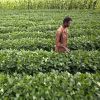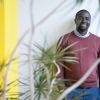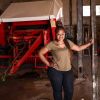Securing the food supply - with data
Jointly combating hunger and malnutrition: a new German-African centre in South Africa is using data, cooperation and young talents to increase food security.
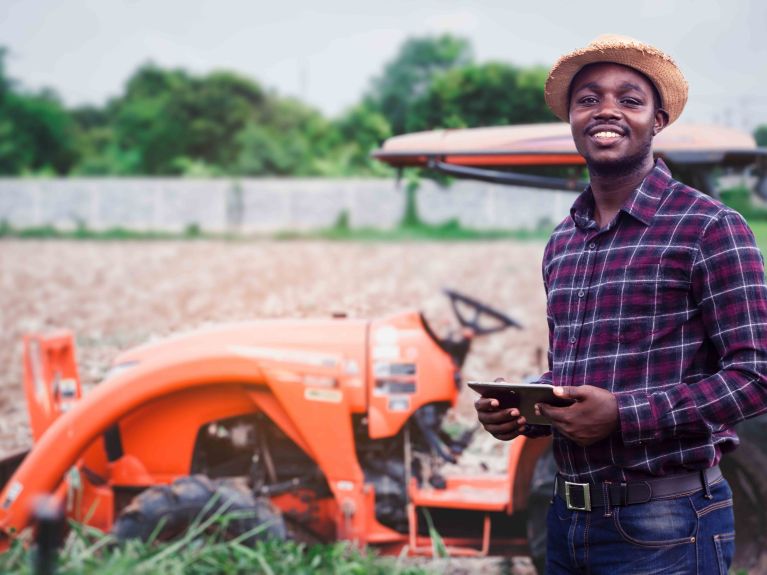
How can hunger and malnutrition in Africa and the world be combated long term? And what role can modern data analysis play in this? The University of Hohenheim is addressing these questions together with four higher education partners in South Africa and Malawi. The establishment of the new African-German Centre for Sustainable and Resilient Food Systems and Applied Agricultural and Food Data Science (UKUDLA) in South Africa underlines the partners’ forward-looking commitment. Supported by the German Academic Exchange Service (DAAD) with funds from the German government and South African ministries, the centre is intended not only to pool expertise but also develop sustainable solutions for food security in Africa and beyond. In an interview with deutschland.de, Professor Christine Wieck and Dr Marcus Giese from the University of Hohenheim talked about the project’s goals, challenges and collaboration. Wieck heads the Chair of Agricultural and Food Policy, while Giese is project manager at the UKUDLA.
Professor Wieck, Dr Giese, the new Centre of Excellence is intended to help bring about sustainable food systems in Africa . How will the Centre shape society, research and policy over the coming years?
Wieck: Our goal is to train young scientists in Germany and Africa, who will develop evidence-based solutions for policymaking and society in sub-Saharan Africa. I hope that I will meet experts in a few years’ time who will say: “The programme I took at the Centre opened my eyes to data-based decision-making.”
The idea is to turn young talents with their knowledge into changemakers.
Giese: We want to establish structures and networks that will prove lasting – via research projects and scholarship and exchange programmes for master’s students, doctoral candidates and postdocs. The idea is to turn young talents with their knowledge into changemakers.
How did the idea for the new Centre come about?
Wieck: The University of Hohenheim has long collaborated with African partner universities, with many African students conducting research and studying at our university. The initial trigger then came when the DAAD called for project applications - we were able to respond with an established consortium of partners in South Africa and Malawi. In our application we deliberately emphasised the data science component, as this is becoming increasingly important for sustainable food systems.
Food systems is a fairly general term. What exactly do you mean by it?
Wieck: Agricultural and food systems encompass not only the agricultural production side or individual value chains, but also the interplay between production, the environment, society and food. The goal is to make these systems sustainable and resilient to crises such as climate change.
Giese: Incorporating data science opens up new opportunities. Large volumes of climate, population or consumption data can help for example to control the demand for resources more precisely or tailor agriculture to specific challenges such as drought or demographic shifts.
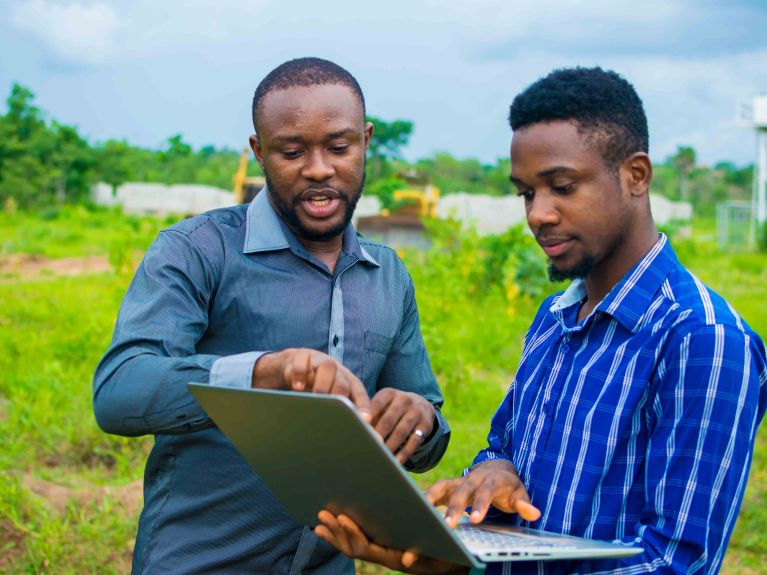
Why is the Centre initially focusing on Southern Africa?
Giese: Firstly, for practical reasons - our partner universities are in South Africa and Malawi. Their food systems are good examples of the many challenges that are faced across the entire continent, however. In the future, the Centre will also be opened up to other African regions.
What are currently the greatest challenges for these food systems?
Wieck: Besides climate change and extreme weather events, the main challenges are food security, economic change and social inequality. Despite some progress, massive problems remain - in terms both of access to healthy food and policies to bring about sustainable food systems.
Our partners in South Africa have specialist fields which complement one another perfectly.
What makes your four African partners – the South African universities of Western Cape, Pretoria and Mpumalanga and the University of Lilongwe in Malawi – so valuable?
Wieck: Our partners in South Africa have specialist fields which complement one another perfectly - from biotechnology and food science to data science and extensive know-how in the area of animal husbandry and farming systems. The universities, some of which are new and some of which are very well established, have been working closely together for many years - and we have likewise been collaborating with them for a long time, which makes the partnership much easier.
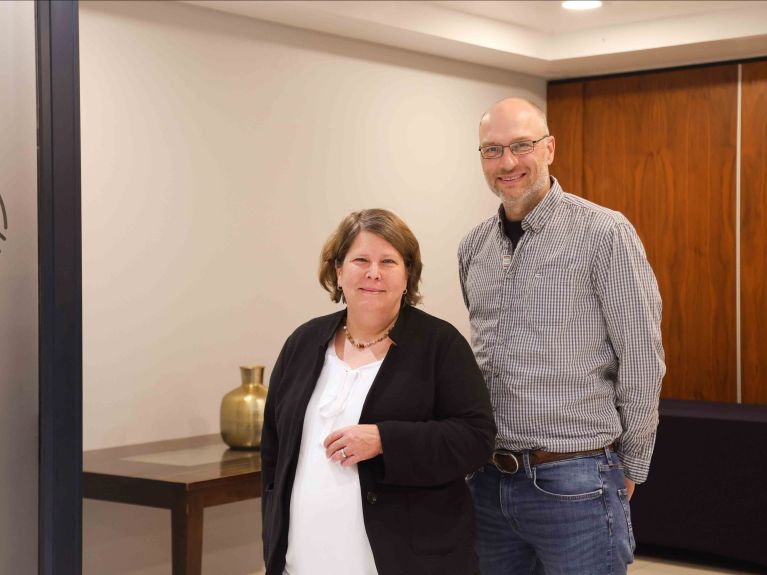
And what characterises the University of Hohenheim as the German partner?
Giese: The University of Hohenheim is one of the leading European research institutions in the field of agricultural, food and nutritional sciences, while at the same time boasting extensive knowledge of tropical agricultural and food systems. Our many years of experience, having been involved in more than 80 research projects in Africa within the last ten years alone, our pool of regional expertise and our broad interdisciplinary basis make us a reliable partner. What is important is that we work together as equals: we learn just as much from our colleagues in Africa as they do from us.
How does the collaboration work in practice?
Wieck: Rather than being an individual institution, the Centre is designed to be a network and platform that pools the competencies of all the participating universities. One central feature are the new chairs that have been set up at two South African universities. Funded by Germany and South Africa, they address innovative research topics in the area of food systems and data science. Doctoral candidates, postdocs and master’s students benefit from scholarships and international exchange programmes. Research is conducted at all the participating institutions and involves close cooperation. Joint workshops, digital tools and bilateral projects ensure that the Centre receives continuous new impetus and that knowledge transfer between Africa and Europe becomes an integral part of our work.
What is important is that we work together as equals: we learn just as much from our colleagues in Africa as they do from us.
One of your goals is to ensure that the results of your research are applied in practice. How do you ensure that this actually happens?
Giese: We believe in dialogue: we run regular workshops and exchange formats to bring perspectives from society, agriculture and politics to the fore. At the same time, we are keen to apply our research results ourselves, for example by developing application-oriented digital tools or making recommendations to decisionmakers.
What do you believe is the societal value of international scientific exchange?
Wieck: Finding solutions to food security, climate adaptation and resource management is a global challenge. It can only be overcome by working together, engaging in exchange and learning from one another. Projects such as our new Centre of Excellence play an important role in this.
African-German Centre for Sustainable and Resilient Food Systems and Applied Agricultural and Food Data Science (UKUDLA)
Together with German and South African partners, the German Academic Exchange Service (DAAD) is funding a new Centre of Excellence in South Africa. Five project partners are involved: The University of Hohenheim in Germany, the South African universities of Western Cape, Pretoria and Mpumalanga and the University of Lilongwe in Malawi. The UKUDLA studies sustainable food systems and uses data science to improve agriculture. The goal is to optimise food systems and train experts. Funding is provided to support students and researchers from Germany and Africa. The Centre of Excellence is funded by the German government. On the South African side, the implementation of the UKUDLA is supported by the National Research Foundation (NRF), with funding provided by the Department of Science, Technology and Innovation (DSTI). The Centre combines the financial resources to create an extensive funding programme.
